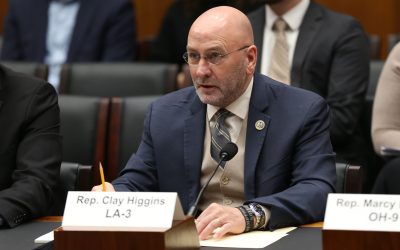WASHINGTON, D.C. – Border Security Subcommittee Ranking Member Clay Higgins’ (R-LA) H.R. 4761, the DHS Opioid Detection Resilience Act of 2019, passed the U.S. Senate this week via unanimous consent. The bipartisan legislation now heads to President Trump’s desk to be signed into law.
The legislation ensures U.S. Customs and Border Protection (CBP) agents have chemical screening devices capable of identifying narcotics with purity levels of 10% or less, which reflects the purity of most fentanyl seized at the southwest border. The bill also requires DHS to implement a plan for the long-term development of a centralized spectral database for chemical screening devices, allowing DHS to push out data to the field as new drug analogs or spectra are identified.
View an outline of the DHS Opioid Detection Resilience Act of 2019 here.
Congressman Higgins issued the following statement:
“Our Homeland Security pro-law enforcement bill is heading to President Trump’s desk to be signed into law. Getting bipartisan legislation passed through Congress during an era of incredibly divisive political posturing by both parties reflects my steadfast commitment to Constitutionalist core principles. Even during the most challenging times, it’s possible to get things done for America. The DHS Opioid Detection Resilience Act helps secure the border and protects our communities against fentanyl and other synthetic opioids. This was a very significant effort. We introduced HR 4761 in October of 2019. My legislative staff and the Homeland Security Committee legislative staff are dedicated Patriots. I’m encouraged to see solid Thin Blue Line legislation advance to President Trump to be signed into law despite divisions in Congress.”



